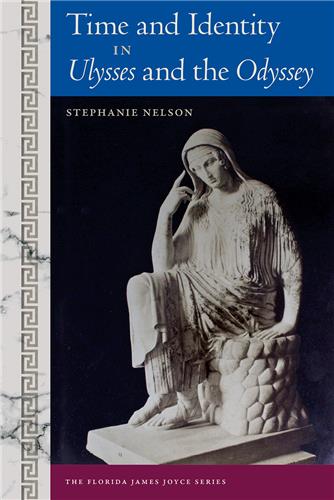Guilt and Finnegans Wake
From Original Sin to the Irredeemable Body
Talia Abu
Hardcover: $90.00
- Series: The Florida James Joyce Series
Exploring the important themes of guilt and morality in James Joyce’s final work
“This is an exciting and important intervention in the field of Wake studies. Abu’s book explores a matter that is central to Joyce’s last novel from a range of new perspectives. The readings of the Wake are substantial, precise, and informed, which is a rare and laudable feat.”—Robert Baines, author of Philosophical Allusions in James Joyce’s “Finnegans Wake”
“Ranges impressively through philosophy, psychology, and law to produce a rich context for Joyce’s treatment of guilt in the Wake.”—Vicki Mahaffey, author of Modernist Literature: Challenging Fictions
James Joyce’s last novel, Finnegans Wake, is notorious for its complex structure and considered by many to be unreadable. Approaching this complicated book with attention to the theme of guilt, an important concept that has been underexplored in studies of the Wake, Talia Abu presents a clear and thorough interpretation that helps illuminate the book for even the most novice Joyce readers.
In Guilt and “Finnegans Wake,” Talia Abu examines how Joyce portrays the evolution of cultural beliefs about morality, from the concept of a moral code set in place by a transcendental authority to an embodied morality that originates in material existence. Through close readings of the novel, Abu demonstrates that Joyce engages with guilt as it relates to the Catholic doctrine of original sin, the institution of the marriage contract, the theories of Nietzsche, and the views of Freud—including Freud’s emphasis on the physical experience as the primary aspect of being. Ultimately, Abu argues that Joyce sees guilt as a personal and unique experience and that emotions such as guilt can be reclaimed from the influence of religious and social institutions.
Delving into Joyce’s representation of historical events while also analyzing Joyce’s wordplay and linguistic techniques and drawing from multiple disciplines to understand different conceptions of guilt, this book shows the importance of the theme to the form of Finnegans Wake and Joyce’s craft more broadly. Pursuing the questions and ideas that Joyce raises about guilt and morality, Talia Abu makes a case for the enduring relevance of Joyce’s work today.
Talia Abu is a lecturer at the Hebrew University of Jerusalem.
A volume in the Florida James Joyce Series, edited by Sam Slote
- Sample Chapter(s):
- Excerpt
- Table of Contents
There are currently no reviews available












